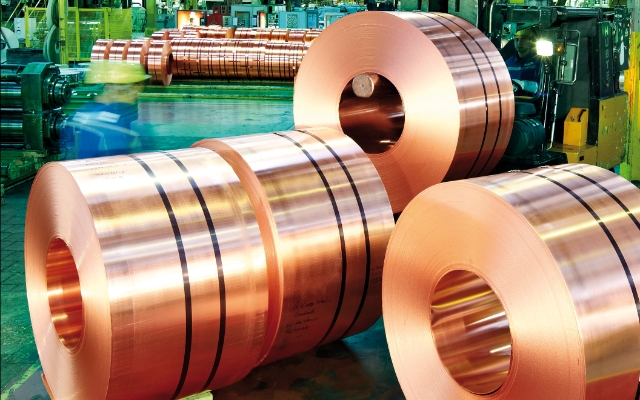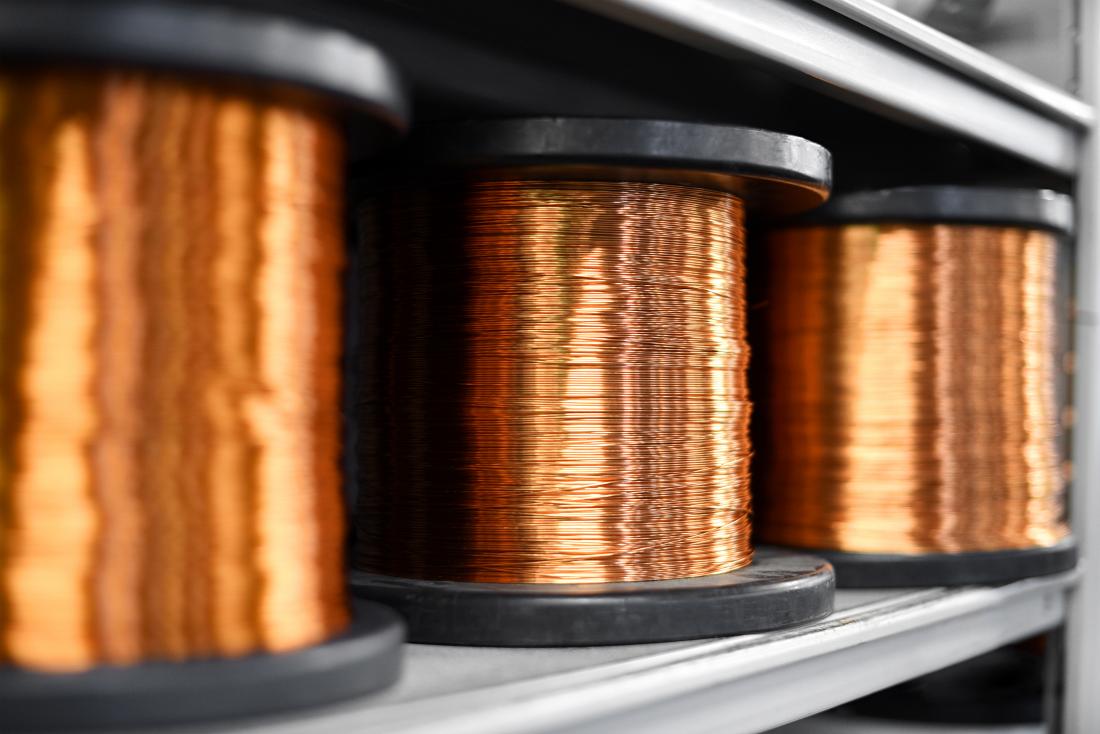From Art to Functionality: The Many Applications of Unique Copper Products
From Art to Functionality: The Many Applications of Unique Copper Products
Blog Article
Discovering the Diverse Applications of Copper Products in Modern Industries
From boosting the performance of electric systems to playing an essential duty in eco-friendly energy innovations, the adaptability of copper is apparent. As industries significantly prioritize technology and sustainability, the diverse applications of copper warrant a closer exam, particularly concerning their possible impact on future ecological practices and technical developments.
Electric Applications of Copper
Copper is a crucial material in the electrical sector, making up approximately 60% of the overall need for non-ferrous metals around the world - Copper Products. Its remarkable electric conductivity, which is nearly twice that of light weight aluminum, makes it the recommended selection for a variety of electrical applications. From electrical wiring systems in commercial and domestic buildings to high-voltage power transmission lines, copper makes sure performance and integrity in electricity shipment
In enhancement to circuitry, copper is indispensable to the production of electrical parts such as transformers, electric motors, and generators. These elements leverage copper's thermal conductivity and malleability, essential for warmth dissipation and effective performance. Copper's resistance to corrosion improves the lifespan and durability of electric systems, making it an economical option in the long term.
The growth of eco-friendly energy sources, such as solar and wind power, has actually even more increased the need for copper in electrical applications. As industries transition in the direction of sustainable power solutions, copper's duty comes to be much more important. Overall, the versatility and efficiency characteristics of copper solidify its condition as a keystone product within the electric field, driving development and effectiveness throughout numerous applications.
Pipes and Piping Solutions
In modern-day plumbing systems, the option of products substantially affects both capability and longevity. Copper has arised as a preferred alternative due to its special homes, consisting of rust resistance and antimicrobial attributes. These features ensure that copper piping stays long lasting and secure for moving potable water, an important factor to consider in property and business applications.
One of the key advantages of copper in plumbing is its ability to stand up to high temperature levels and stress, making it ideal for a variety of applications, from warm water systems to heating and cooling networks. Furthermore, copper's versatility enables less complicated installment in complicated piping designs, minimizing the danger of failures and leakages.
One more noteworthy advantage is copper's long life expectancy, often surpassing 50 years with proper maintenance. This long life not only lessens replacement costs but also adds to sustainable techniques by minimizing waste. Copper's recyclability lines up with modern-day ecological standards, promoting a circular economic climate within the plumbing industry.
Copper in Renewable Resource
The versatility of copper expands beyond pipes applications, playing a vital duty in the sustainable energy industry. Its outstanding electrical and thermal conductivity makes it a necessary material in the manufacturing and distribution of renewable energy resources, particularly solar and wind power. In photovoltaic panels, copper is used in solar batteries and electrical wiring, promoting reliable energy conversion and transmission. Its resistance to deterioration makes sure long-lasting efficiency, which is essential for optimizing energy outcome over time.

Furthermore, as the worldwide demand for electric lorries (EVs) increases, copper's role in battery systems and charging infrastructure becomes much more significant. The material's capability here are the findings to carry out electrical power effectively is indispensable to the performance of EV batteries, enhancing array and billing rate.
Copper's Role in Electronics
Electronics making depends heavily on copper's outstanding properties, particularly its high electrical conductivity and thermal effectiveness. These qualities make copper a perfect selection for a vast array of electronic elements, including adapters, circuit card, and wiring. The metal's ability to successfully send electrical signals ensures marginal energy loss, which is crucial in high-performance digital devices.
In addition, copper's thermal conductivity plays a considerable role in warm dissipation, protecting delicate elements from overheating. This is especially vital index in contemporary electronic devices, where small layouts lead to increased warm generation. Copper is also preferred for its pliability and ductility, enabling it to be conveniently formed into detailed designs that fulfill the demands of sophisticated electronic applications.
With the surge of customer electronic devices, telecommunications, and electric cars, the demand for copper in the electronics industry continues to grow. Therefore, copper continues to be a keystone product in the ever-expanding field of electronics.
Cutting-edge Uses in Manufacturing

One notable application is in additive manufacturing, where copper-based products are utilized in 3D printing procedures. This permits the development of lightweight elements and complex geometries, specifically in the aerospace and automobile markets. In addition, copper's thermal conductivity makes it a perfect choice for heat exchangers, boosting efficiency in industrial air conditioning systems.
Moreover, the rise of clever manufacturing has seen the incorporation of copper in IoT devices, where its conductive capabilities sustain advanced picking up modern technologies. In the realm of eco-friendly energy, copper is pivotal in the manufacturing of solar panels and wind turbines, promoting a lot more you can try here efficient power conversion and circulation.
As markets strive for sustainability and innovation, copper's versatility and efficiency continue to place it as a critical material, driving advancements in production and contributing to the growth of smarter, a lot more efficient items.
Final Thought
The indispensable duty of copper in sustainable power and its essential feature in electronics underscore its value in progressing lasting methods. Jointly, these applications highlight copper's critical contribution to technological progress and commercial performance in modern culture.
From enhancing the efficiency of electrical systems to playing an essential function in eco-friendly power innovations, the versatility of copper is obvious. As industries increasingly prioritize development and sustainability, the diverse applications of copper warrant a closer assessment, specifically regarding their possible impact on future ecological techniques and technological improvements.
The growth of sustainable power sources, such as solar and wind power, has actually further raised the demand for copper in electrical applications. In general, the flexibility and efficiency attributes of copper solidify its condition as a foundation product within the electrical industry, driving development and performance across different applications.
The adaptability of copper extends past plumbing applications, playing a crucial function in the eco-friendly energy field.
Report this page